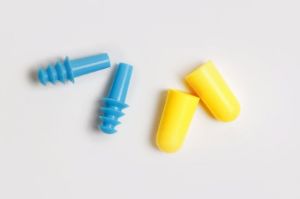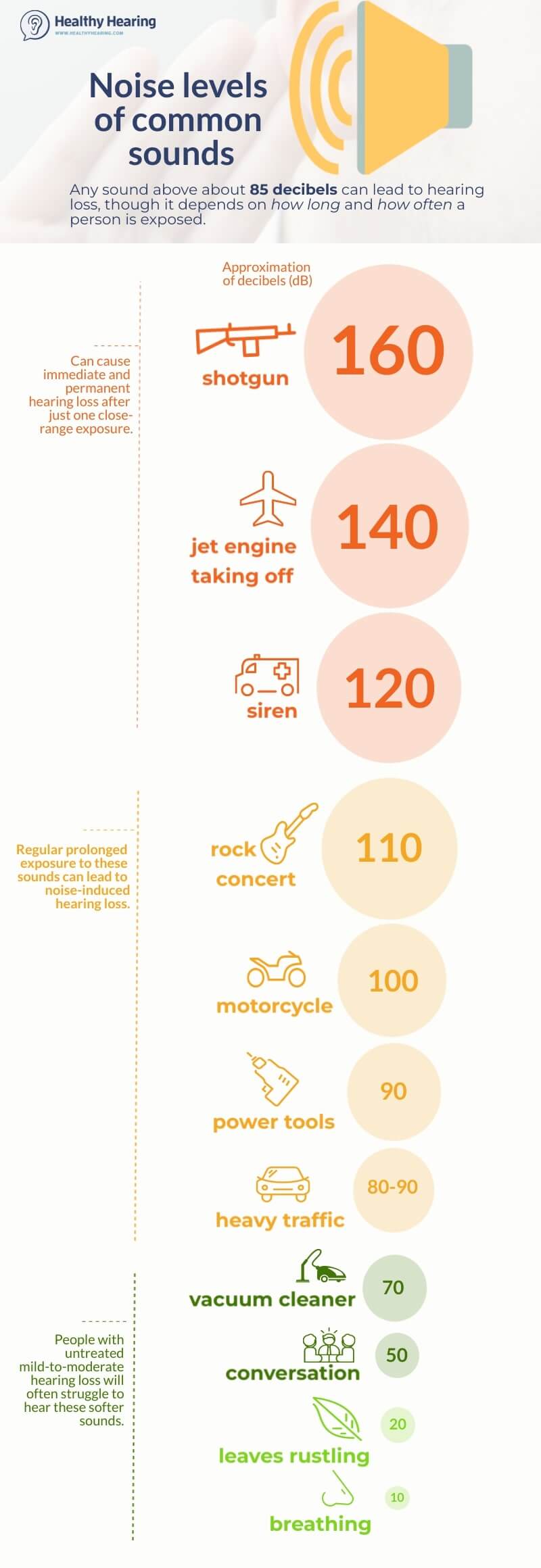Key points:
-
Fireworks can cause hearing damage—from both the loud sound and the blast wave.
-
Professional displays are safer than at-home fireworks.
-
Never let babies near fireworks as their delicate hearing is easily damaged. Keep babies home.
-
Hearing protection is recommended for everyone.
Fireworks, even simple sparklers, are well-known among emergency physicians as a major cause of painful injuries and burns to the hands, arms and face. And whether you are watching a professional show or have purchased your own fireworks, hearing loss is also a real risk. This kind of hearing is permanent, known as noise-induced hearing loss.
4 ways to protect your hearing from fireworks
1. Skip the home displays
While it's an American tradition to go out and buy fireworks to use at home, we strongly recommend skipping this risky activity. Thousands of children are injured each year from home fireworks, sometimes fatally. Why take the risk? Instead, attend your local community celebration. If you must simply explode things at home, follow best practices to limit the risk of injuries and destructive fires.
2. Keep a safe distance at professional shows
Fireworks create noise and a blast wave that can harm your hearing. One way to reduce the risk of damage is to maintain a safe distance from the display. The farther the better, but a minimum distance of around 500 feet will still give you a great view without the sound pressure that can damage the tiny hair cells in the inner ear.
3. Bring—and wear!—earplugs or earmuffs (or both)

permanent hearing loss from fireworks.
These are especially important for kids.
Inexpensive foam earplugs can be found in drugstores and pharmacies, and work well for adults; earmuffs (basically foam-filled cups that cover the ears) are better for small children because earplugs sometimes don’t fit and can be a choking hazard.
4. Never expose babies to fireworks
Infants should not be exposed at all; an infant’s ear canal is much smaller than an older child's or an adult's, so the sound pressure entering the ear is greater. What might not sound that loud to an adult actually sounds up to 20 decibels louder to an infant. Keep your little ones at home.
High-risk fireworks to avoid
Rockets, mines and any fireworks that have many blasts strung together tightly. These fireworks are created to make as much noise as possible. Quieter fireworks include fountains, wheels, falling leaves and comets. While not completely silent, they crackle and whistle instead of creating a loud, explosive boom. They'll keep your hearing safe and not annoy pets and neighbors (as much).
Why are fireworks so loud?
It all comes down to the chemical reaction that happens after the fuse is lit. The burning gunpowder releases hot gas that expands rapidly; when the gas expands to the point that it runs out of room within the firework, the resulting explosion causes a blast wave.
The vibrations from that blast wave have the potential to cause permanent damage to the delicate hair cells of the inner ear.
Yes, they're exciting, but the problem is the excitement is often measured by the “loudness factor." Volume is measured in decibels. For some people, the louder the better.
How loud are fireworks?
Loud explosions, including fireworks, have the potential to reach levels between 150 and 175 decibels at close range. This is extremely loud and can be very damaging to your hearing.
At close range, fireworks are typically between 150 and 175 decibels—well above what's safe for your hearing.
When it comes to fireworks, the World Health Organization recommends the maximum safe decibel level for adults is 140 decibels, and for children only 120 decibels. Fireworks often range right between a shotgun blast and a jet engine taking off:

Noise-induced hearing loss from fireworks
Exposure to noises such as loud fireworks can result in:
- Tinnitus
- Slight temporary hearing loss (less than 24 hours)
- Eardrum perforation (rare)
- After repeated exposure, it can cause permanent hearing loss, especially as you get older
Protecting your hearing now will enable you to enjoy the sounds of the fireworks for years to come. If you think you have temporary hearing loss after attending a fireworks display, see a hearing care professional—you can find a clinic in our extensive consumer-reviewed directory.
The above is the interpretation of Protect Your Hearing from Fireworks: 4 Essential Tips provided by Chinese hearing aid supplier Shenrui Medical. Link https://www.srmcm.com/Blog/Protect_Your_Hearing_from_Fireworks_4_Essential_Tips.html of this article is welcome to share and forward. For more hearing aid related information, please visit Blog or take a look at our Hearing aids products















